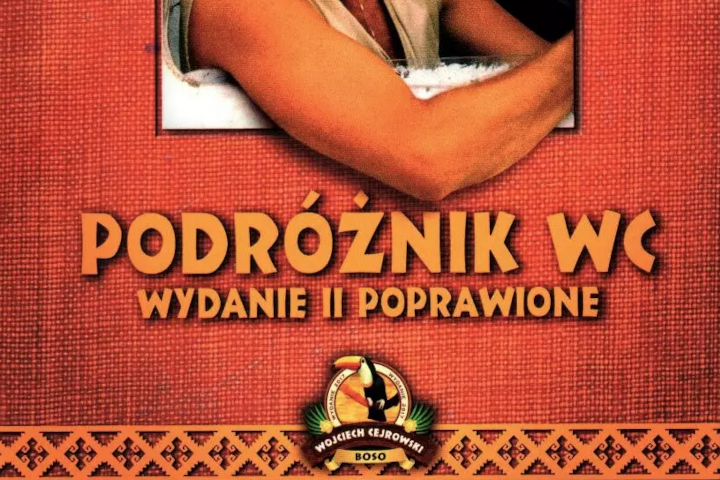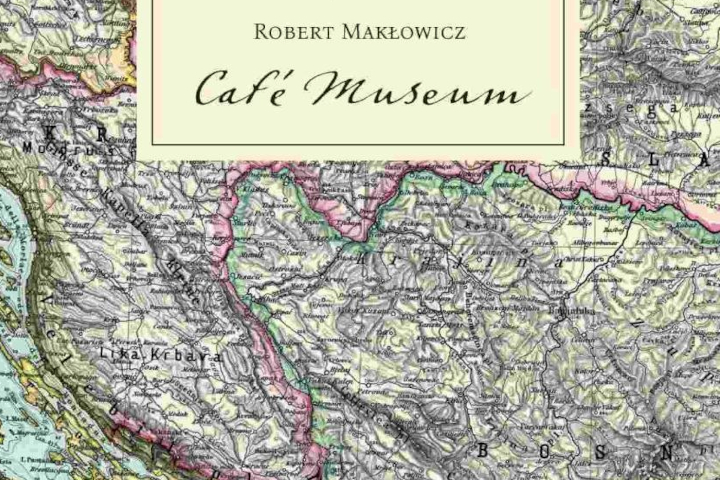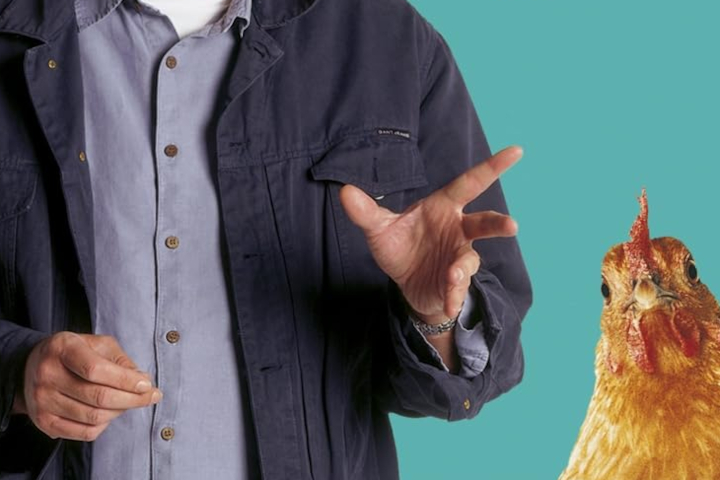About the written word
“Control your style!”
… so were the words my high school Polish teacher summed up one of my essays. I still remember that comment clearly because in retrospect, it’s hard not to agree with her. My first attempts at writing were… various in quality. In my defense, writing a coherent thought is not that easy, especially when you have nothing interesting to say on the very topic.
I’ve always been drawn to writing, although I was often forced to tackle topics that didn’t move me at all. I’ll take on an essay about “The Doll” (“Lalka”) by Bolesław Prus anytime and anywhere, but that’s one of the few school exceptions. Psychoanalysis of “The Peasants” (“Chłopi” written by Władysław Reymont) or an interpretation of Chełmoński’s dirty feet I’ll leave to the fans of such genre. Often I had a feeling that if something didn’t “move” me, it wasn’t worth even starting. I performed much better at personal texts based on my own experiences, but fiction was never my strong side. Describing events in the existing world was something else entirely (I feel the same way about photography!) and attempts at keeping journals. The more time and reflection I devoted to it, the better the final results.
I started in the most classic way — writing by hand in notebooks of various kind. For a short time, I also experimented with a typewriter, but tired of the constant noise and limited editing options, I came to a simple conclusion: nothing beats a sleek laptop! Quiet, portable, with access to the vast resources of Internet, it also allows full refinement of the text. I live in the 21st century, so there’s no point in giving up the benefits of civilization.
Anyone can write, but Sander does his best on his own
Just as I started getting interested in photography, the idea of creating a joint photoblog appeared. I reacted enthusiastically, putting it mildly — I was genuinely hyped! Several first posts came to life, that combined images with text, and sparked in me a strong belief that this might be THE THING. However I quickly realized something wasn’t quite right. I wanted to take a slightly different path — one that I laid out by myself, going solo.
There an idea of “Szumne Ziarno” (The Noisy Grain), my own creative patch, had been already growing in my head. A space where I could combine writing about the world around me with showcasing my photographic work on my own terms. I won’t be hiding it: I am not an easy guy to work with, and I work most effectively alone. I apologize in advance to anyone this might affect, but that’s just how it is.
Traveller WC

It was Cejrowski who introduced me to classics of polish travel literature: Tony Halik (180tys. kilometrów przygody), Arkady Fiedler (Madagaskar), as well as many lesser-known authors. Their descriptions of world corners and travel stories worked intensely on my imagination. Visiting Dalmatia, Budapest, Venice, or the capitals of Baltic countries — some part of me wanted to think of myself as a bit of a traveler.
However, Cejrowski talked about distant, exotic, often wild worlds. He travels barefoot and isn’t afraid to take risks out of pure curiosity. And me? I think I’m too proper and urban, raised in big-city realities, in need of a structure and order. That’s why there’s one more figure — temperamentally closer to me — whom I definitely should mention.
Café Museum

Makłowicz opens Poles to the world, but he opened me primarily to Poland. Accustomed to spending holidays by Jadran (the Adriatic Sea), for a long time, I saw Poland as an expensive and overrated tourist country. Sure, there are such places, but they are only a few points on the map. In the holiday season, 80% of people go to a handful of seaside resorts, a few mountain towns, or the largest metropolises. Meanwhile, thanks to Mr. Robert, I’m discovering that Poland is much more — diverse, fascinating, and often underrated, worth discovering.
Mr. Robert is like a good wine — the older he is, the more refined and sophisticated he gets. In one of the YouTube episode, he said something memorable: one should surround oneself with beautiful things. It’s hard to disagree with that. I’d only add that it’s worth infecting others with beautiful things. That way, the world becomes a better, more refined place.
And One More Thing… The World According to Clarkson

Clarkson’s The World According to Clarkson volumes are deeply rooted in British realities, yet his texts prove surprisingly universal even after two decades. Granted, his numerous tangents and abstractly referenced names can confuse Polish readers, but he presented the contemporary world from the perspective of a four-wheel enthusiast. Reading him, you often encounter descriptions of political situations, technological developments, and nuances of contemporary customs. Because of this, Clarkson’s articles serve as a kind of time capsule, full of timeless observations and reflections. If he were Polish, he would probably write about our realities just as uncompromisingly — without unnecessary filters or self-censorship.
Clarkson often didn’t bite his tongue, and when necessary, he could even strike someone (literally). His relaxed, ironic distance and slightly cheeky but honest tone can be off-putting, but it resonated perfectly with me. Sometimes you need to call things as they are. Or turn right when everyone else mindlessly goes left. That doesn’t mean he was an unrefined savage. He often emphasized his appreciation for cultural works, civilizational achievements, and the preservation of traditions that, in his opinion, were worth saving. His experiences and passions shaped his views, which could be placed somewhere between progressive modernity and established tradition — in search of the golden mean.
Supplementary bibliography
Of course, the titles listed above don’t exhaust the list of authors or books that serve as my sources of knowledge and inspiration. There are many other titles worth recommending that cannot be omitted. Since I focus on telling stories about the real world rather than creating fictional universes, below is a selection of books on that very topic: about the world, about people, about passions.
- Cejrowski, Wojciech. Gringo wśród dzikich plemion
- Cejrowski, Wojciech. Rio Anaconda
- Cejrowski, Wojciech. Wyspa na Prerii
- Cejrowski, Wojciech. Piechotą do źródeł Orinoko
- Clarkson, Jeremy. Świat według Clarksona
- Clarkson, Jeremy. Motoświat
- Clarkson, Jeremy. Świat według Clarksona, część 3. Na litość boską!
- Dumanowski, Piotr. Guziak, Dominik. W krainie piłkarskich bogów. O Polakach w Serie A
- Fiedler, Arkady. Kanada pachnąca żywicą
- Fiedler, Arkady. Gujana. Spotkałem szczęśliwych indian
- Halik, Tony. Jeep. Moja wielka przygoda
- Halik, Tony. Z kamerą i strzelbą przez Mato Grosso
- Hornby, Nick. Futbolowa gorączka
- Kapuściński, Ryszard. Imperium
- Makłowicz, Robert. C.k. kuchnia
- Montague, James. 1312. Incognito wśród najbardziej fanatycznych kibiców na świecie
- Prokurat, Sergiusz. To nie jest miejsce dla gringo
- Rudzki, Przemysław. Zapiski z Królestwa. 50 niesamowitych historii o angielskim futbolu
- Springer, Filip. Miasto Archipelag. Polska mniejszych miast
- Uryn, Bolesław Adam. Mongolia. Wyprawy w tajgę i step
- Wiśniewska, Ilona. Białe. Zimna wyspa Spitsbergen
- Wojtaszek, Aleksandra. Fjaka. Sezon na Chorwację
NOTE: the following titles are polish in vast majority, without any official english translations. But please bear with me, you have to keep in mind that I am from Poland, we do have great books written in our tongue and I shall stick to them, nethertheless.